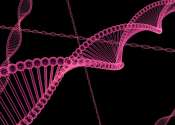Bidirectional association seen for sleep disorders, chronic kidney disease
There are bidirectional associations for sleep disorders with chronic kidney disease (CKD), according to a review published in the November issue of Chronic Kidney Journal.
Nov 20, 2024
0
1









